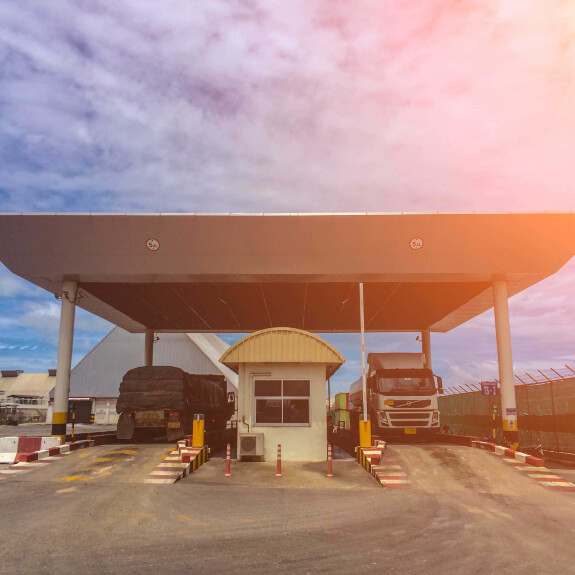
When it comes to industrial and commercial weighing, the importance of accuracy and reliability cannot be overstated. One essential tool that guarantees these factors is the weighbridge.
Often seen in large-scale manufacturing, transportation, and waste management industries, the weighbridge forms an integral part of a system designed to maintain integrity, efficiency, and legality in business operations.
What is a Weighbridge?
A weighbridge, commonly referred to as a truck scale, is a large set of scales, typically mounted permanently on a concrete foundation.
Its primary function is to weigh entire road vehicles and their contents. This precise measurement of cargo and vehicles is crucial for several reasons, from commercial considerations to legislative compliance.
Ensuring Accurate Load Measurement
Accuracy in load measurement is one of the key functionalities of a weighbridge. By providing precise weight data, businesses can optimise their load efficiency, ensuring that vehicles aren’t underloaded, which could lead to revenue loss, or overloaded, causing unnecessary wear and tear or even safety risks.
Furthermore, knowing the exact weight of goods transported helps in making informed decisions on transportation and logistics management.
Preventing Overloading and Ensuring Road Safety
Weighbridges contribute significantly to road safety by preventing vehicle overloading. In South Africa, road regulations stipulate specific weight limits for different categories of vehicles. Overloading not only poses a risk of damaging the nation’s road infrastructure but also increases the chances of accidents.
It’s therefore essential that all cargo-loaded vehicles are weighed before they hit the road. By providing accurate weight data, weighbridges help companies adhere to these road regulations and avoid hefty penalties.
Fraud Prevention
Weighbridges are also crucial tools for fraud prevention. In commercial transactions based on weight, such as those in waste management or raw material purchase, accurate weight data is vital.
Weighbridges prevent any disputes by offering precise, reliable, and verifiable weight measurements, ensuring that all parties involved in a transaction are on the same page. This not only prevents potential fraudulent activity but also builds trust among business partners.
The Legal Aspect
From a legal standpoint, the importance of weighbridges is clear. They provide a record of the weights of goods bought or sold, acting as a basis for commercial transactions.
Many industries have regulations requiring such records to ensure fairness and transparency. Weighbridge records, hence, are legally binding documents that can serve as proof in case of any disputes or legal scrutiny.
Contributing to Efficiency
Lastly, weighbridges significantly contribute to operational efficiency. With their integration into modern software systems, weight data can be instantly captured, stored, and analysed. This facilitates real-time inventory management and streamlines operational processes, leading to improved productivity and reduced costs.
In conclusion, the purpose of a weighbridge extends beyond mere weight measurement. By ensuring load accuracy, road safety, fraud prevention, legal compliance, and operational efficiency, weighbridges play a pivotal role in industrial and commercial weighing, making them a must-have asset for businesses in these sectors.


